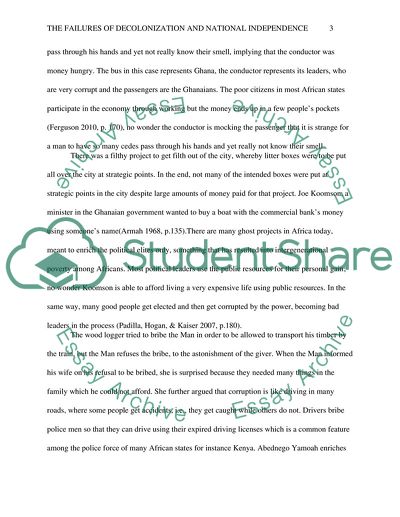Cite this document
(“Perspectives on African Experience- Examine Ayi Akwei Armah's Essay”, n.d.)
Perspectives on African Experience- Examine Ayi Akwei Armah's Essay. Retrieved from https://studentshare.org/history/1684812-perspectives-on-african-experience-examine-ayi-akwei-armahs-representation-of-the-failures-of-decolonisation-and-national-independence-in-the-beautyful-ones-are-not-yet-born
Perspectives on African Experience- Examine Ayi Akwei Armah's Essay. Retrieved from https://studentshare.org/history/1684812-perspectives-on-african-experience-examine-ayi-akwei-armahs-representation-of-the-failures-of-decolonisation-and-national-independence-in-the-beautyful-ones-are-not-yet-born
(Perspectives on African Experience- Examine Ayi Akwei Armah'S Essay)
Perspectives on African Experience- Examine Ayi Akwei Armah'S Essay. https://studentshare.org/history/1684812-perspectives-on-african-experience-examine-ayi-akwei-armahs-representation-of-the-failures-of-decolonisation-and-national-independence-in-the-beautyful-ones-are-not-yet-born.
Perspectives on African Experience- Examine Ayi Akwei Armah'S Essay. https://studentshare.org/history/1684812-perspectives-on-african-experience-examine-ayi-akwei-armahs-representation-of-the-failures-of-decolonisation-and-national-independence-in-the-beautyful-ones-are-not-yet-born.
“Perspectives on African Experience- Examine Ayi Akwei Armah'S Essay”, n.d. https://studentshare.org/history/1684812-perspectives-on-african-experience-examine-ayi-akwei-armahs-representation-of-the-failures-of-decolonisation-and-national-independence-in-the-beautyful-ones-are-not-yet-born.


